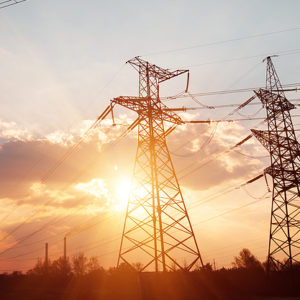The Pennsylvania Manufacturers Associations (PMA) asked a state House committee to reject a bill it says could destabilize the state’s power grid and endanger access to reliable electricity. And in a political twist, it also argued that the bill, pushed by progressive green activists, could also endanger the environment.
House Bill 1467, proposed by outspoken anti-fossil-fuel Rep. Danielle Friel Otten (D-Chester County), mandates that electric companies buy 30 percent of their energy from solar farms by 2030. It also includes targets for solar-generated and distributed in the state, as well as community solar projects. It’s an expansion of the Pennsylvania Alternative Energy Portfolio Standards Act originally passed in 2004.
During testimony before the House Environmental & Energy Committee, PMA President and CEO David N. Taylor said such a mandate could “destroy natural habitat, threaten groundwater with excessive runoff, and cause a disposal crisis.”
PMA’s major concern involved the potential size of any sort of solar farm. A 2020 study by FreeingEnergy said 2.97 acres of solar panels are needed to generate one gigawatt-hour of electricity. That suggests that more than 219,000 acres of solar panels are needed for Pennsylvania.
Not so, said Taylor, because of technological limitations. “[S]olar has a capacity generation factor of, at best, 25 percent, meaning that you must build four times as many solar arrays,” he told committee members. That equals 876,506 acres or 1,068 square miles to meet HB 1467’s 30 percent requirements.
“You could cover every square inch of Philadelphia, Delaware, and Chester Counties with solar panels and still be 300 square miles short,” said Taylor. “Again, this calculation is just for current usage, while demand is certain to increase, especially with policies favoring further electrification, including vehicles.”
According to Taylor, enforcing the 30 percent solar farm mandate would cost Pennsylvania ratepayers almost $2 billion per year. He warned the bill “would cost Pennsylvania ratepayers $1.8 billion per year” without accounting for inflation. Those costs include buying additional wind and solar power and “further discriminate against Pennsylvania coal, natural gas, and nuclear plants.”
What is particularly worrisome is an energy transition report from the operator of Pennsylvania’s electric transmission system. The report from PJM Interconnection suggests its reserve electricity margins could keep dropping through 2030. Due to changing federal regulations, PJM might retire 40 gigawatts of its fossil fuel fleet resources going into 2026. Should it become law, energy reserves might drop to five percent in 2030 when HB 1467’s solar requirements go into effect.
That alarms Taylor, who called this “a threat to public safety” with an increased chance of blackouts. “[Those] are not merely a potential nuisance but a deadly threat to our hospitals, nursing homes, fire and police stations, and other critical infrastructure.”
He also fretted about China’s dominance in the solar panel industry, where 95 percent of the solar panel market possibly contains Chinese silicon. “Handing control of our energy production to a hostile foreign power is foolhardy in the extreme,” Taylor said before pivoting to China’s human rights abuses. “No American consumer should ever be exposed to slave-made goods in the U.S. marketplace.”
That did not go over well with state Rep. Joseph Hohenstein (D-Philadelphia). “For you to act as if there isn’t blood in fossil fuel production throughout the world is insulting,” he shot back.
“The solar production that we’re talking about supporting here, the wind production that would be supported is things are, those are things coming from inside the commonwealth,” a clearly angry Hohenstein added. “Remember, what we are doing this for is because climate change is real. Fossil fuels are the primary contributor to the climate change that we have. And there is damage being done by fossil fuels that isn’t done in other areas.”
Taylor was not allowed to respond to Hohenstein’s comments by committee chair Rep. Greg Vitali (D-Haverford), who ushered in another witness.
David Althoff, director of the Energy Programs Office at the Pennsylvania Department of Environmental Protection (DEP), told the panel that Gov. Josh Shapiro backs the bill, particularly the 30 percent by 2030 mandate.

